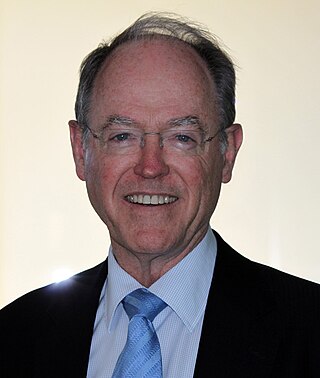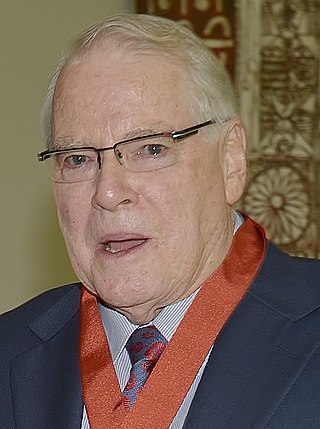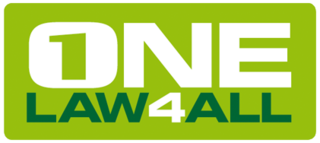The New Zealand National Party, shortened to National or the Nats, is a centre-right political party in New Zealand. It is one of two major parties that dominate contemporary New Zealand politics, alongside its traditional rival, the Labour Party.

Donald Thomas Brash is a former New Zealand politician who was Leader of the Opposition and Leader of the New Zealand National Party from October 2003 to November 2006, and the Leader of ACT New Zealand from April to November 2011.
Katherine Rich served as a member of the New Zealand House of Representatives for the National Party from 1999 to 2008. She has been chief executive of the New Zealand Food & Grocery Council, an industry lobby group, since 2009.

The Maxim Institute is a research and public policy think tank based in Auckland, New Zealand. The Institute's work is oriented toward a conservative perspective on its issues of primary concern, which are now education policy, tax and welfare policy. Although initially identifiable as a social conservative organisation, its policy statements have emphasised fiscal restraint within tax and welfare policy since its former director, Bruce Logan, left in 2005.

Nicky Hager is a New Zealand investigative journalist. He has produced seven books since 1996, covering topics such as intelligence networks, environmental issues and politics. He is one of two New Zealand members of the International Consortium of Investigative Journalists.

Judith Anne Collins is a New Zealand politician who served as the Leader of the Opposition and Leader of the New Zealand National Party from 14 July 2020 to 25 November 2021. She was the second female Leader of the National Party, after Jenny Shipley. Collins has served as the Member of Parliament (MP) for Papakura since 2008 and was MP for Clevedon from 2002 to 2008. She was a government minister in the cabinets of John Key and of Bill English.

The Orewa Speech was a speech delivered by the then-leader of the New Zealand National Party Don Brash to the Orewa Rotary Club on 27 January 2004. It addressed the theme of race relations in New Zealand and in particular the status of Māori people. Brash approached the subject by advocating 'one rule for all' and ending equitable measures and affirmative action for Māori, which he described controversially as "special privileges".

Orewa is a suburb of Auckland, New Zealand’s largest city. It lies on the Hibiscus Coast, just north of the base of the Whangaparāoa Peninsula and 40 kilometres north of central Auckland. It is a popular holiday destination.

Secrets and Lies, subtitled "the anatomy of an anti-environmental PR campaign", is a 1999 book by Nicky Hager and Bob Burton.
The 2005 New Zealand election funding controversy occurred in the aftermath of the 2005 New Zealand general election.

Michael Edward Rainton Bassett is a former Labour Party member of the New Zealand House of Representatives and cabinet minister in the reformist fourth Labour government. He is also a noted New Zealand historian, and has published a number of books on New Zealand politics, including biographies of Prime Ministers Peter Fraser, Gordon Coates and Joseph Ward.

The Hollow Men is a 2006 book written by Nicky Hager about the election strategies used by the New Zealand National Party during New Zealand's 2005 general election. The book has been adapted into a stage play, and filmed as a documentary.
The Plymouth Brethren Christian Church (PBCC) also known as Raven Brethren or Taylorites is a Christian denomination currently led by Australian businessman Bruce Hales. The group is a subset of the Exclusive Brethren, a Plymouth Brethren group. The PBCC was established in the early nineteenth century. At this time many Christians were becoming increasingly dissatisfied with the Anglican Church, which they deemed as too closely resembling the Catholic Church in doctrine and ritual.
Cameron Slater is a right-wing New Zealand-based blogger, best known for his role in Dirty Politics and publishing the Whale Oil Beef Hooked blog, which operated from 2005 until it closed in 2019. He edited the tabloid newspaper New Zealand Truth from November 2012 until it ceased publication in July 2013. Slater's father, John Slater, served as President of the New Zealand National Party from 1998 to 2001.

Paul Jonathan Goldsmith is a New Zealand politician and, since the 2011 election, a list member of the New Zealand House of Representatives. He the National Party spokesperson for justice, and workplace relations and safety.

1Law4All was a registered political party in New Zealand. The party was launched in June 2013 and was temporarily led by Tom Johnson. The party supported removing references to the Treaty of Waitangi from legislation, abolition of the Waitangi Tribunal and Māori electorates, repeal of the Marine and Coastal Area Act 2011, and withdrawal of New Zealand from the UN Declaration on the Rights of Indigenous Peoples. The party never contested an election and was deregistered in May 2015.

Dirty Politics: How attack politics is poisoning New Zealand’s political environment is a book by Nicky Hager published in August 2014.

The New Zealand National Party leadership election was an election for the National Party leadership position held in 2003.

The New Zealand National Party leadership election was an election for the National leadership position in 2006 following the resignation of Don Brash.
During the 1990s New Zealand saw a growth in populism, a political trend whose advocates claim to work for "the people" rather than for the "elite". The rise of populism in the country has been attributed to the introduction of the mixed-member proportional electoral system, as well as to the populist nature of election campaigns, such as that of the Labour Party in the lead-up to the 1999 election. The New Zealand First party, which has historically taken a nationalist standpoint, has been described as a populist party.












